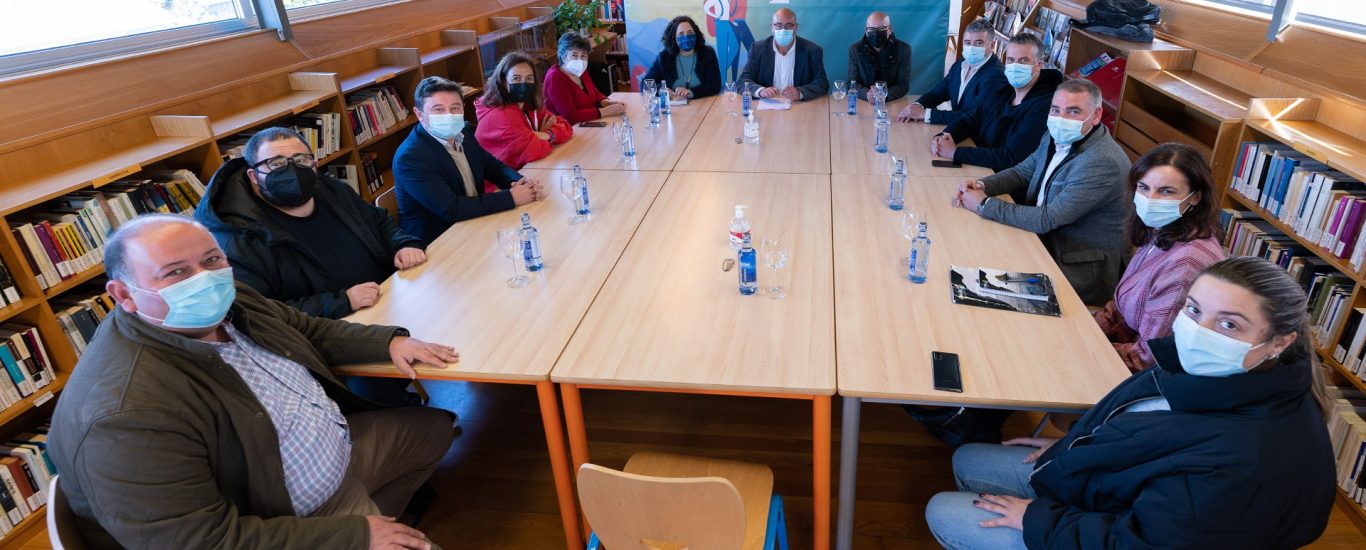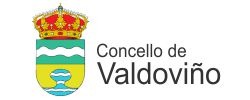After six years of hard work and on the second attempt, the Cape Ortegal Geopark Project has just been notified -by the Spanish National Committee for Cooperation with UNESCO- that it will be one of the two state candidates to obtain the Global Geopark label. The news was made public early this morning and capitalised the working meeting in which representatives of all the administrations involved in the initiative – the seven town councils, the Diputación de A Coruña and the Xunta de Galicia – participated, in an atmosphere of clear satisfaction, with the aim of evaluating the most recent advances of the project. However, the meeting also served to raise awareness of the intense work that must be carried out from now on in order to consolidate the initiative and pass with flying colours the field test that will be carried out on May next year by the International Geoscience and Geoparks Programme.
The designation of the Cape Ortegal Geopark Project as one of the two Spanish candidatures – the other one being Costa Quebrada, in Cantabria – will be made official in a few days, when the Spanish National Committee for Cooperation with UNESCO sends its letter of support to the International Geoscience and Geoparks Programme, together with the complete project dossier.
The decision was based on the new selection criteria applied in this year’s edition, which emphasise the geological exceptionality of Cape Ortegal, where we can find to 6 Geosites – sites of international geological interest – that show us the context of the Iberian Variscan Orogeny and that are unique in the world, as they allow us to discover one of the most exciting chapters in the history of the planet. In this sense, the local project obtained the maximum score: 13 points.
From this moment on, a process begins which will result in the visit of international evaluators -expectedly from May- who will analyse on the ground the fulfilment of the objectives pursued by the geoparks in terms of the enhancement of the geological heritage, the scientific and educational dissemination of its relevance, the promotion of sustainable tourism and, perhaps most importantly, the implementation of a socio-economic development strategy based on all of the above.
The mayor of Valdoviño and current president of the promoting association, Alberto González, described the news made public today as “an important milestone for the territory” and summarised that it was said in the midday meeting that their commitment is to “continue advancing in the joint work” in two ways: on the one hand, “strengthening relations between administrations” and, on the other, setting up the three working groups – the scientific committee, the inter-institutional committee and the social participation committee – to ensure that the project is functioning as a geopark before the evaluation – something required by UNESCO itself – and to ensure that the territory “values, knows and understands what the value of a geopark is”.
González insisted that the Global Geopark status to which the seven municipalities aspire “has a relevance on the same level as a World Heritage Site” which, in the event that the distinction is obtained, will require “to continue to make territory from all points of view; leisure, tourism, life…” since every four years it is necessary to pass a UNESCO test and it is more difficult to keep the distinction than to get it the first time.
For this reason, as reported at the end of the meeting, in the coming months the efforts of the Association for the management of the Cape Ortegal Geopark will focus on the implementation of investments and planned actions and, especially, on the work to achieve the social identification of the population with the project.
The vice-president of the Diputación de A Coruña and responsible for Tourism, Xosé Regueira, reiterated the provincial commitment to a project which, he said, places us “at the gates of entering the world elite of geological sites, which is very important not only from a scientific point of view, but also to maintain a strategy of sustainability, economic upturn, strengthening of the population in rural areas and employment opportunities for the people who live here”.
Regueira recalled during the meeting that, in addition to the 240,000 euros of provincial contribution to the project – recently collected in an agreement with the managing association – the area will also receive Next Generation funds for the development of a Tourism Sustainability Strategy in Destination, which will help to structure and modernise the resources and services to attract quality tourism that is looking for nature destinations.
For her part, the General Manager of Natural Heritage of the Xunta de Galicia, Belén do Campo, highlighted the quality of “a winning project with a future” for which she publicly reiterated the support of the regional government. The general manager pointed out – as the Galician representative on the UNESCO Cooperation Committee – that of the four aspiring proposals, Cape Ortegal “is the one with the most points, which puts it ahead of other candidatures”, largely due to its geological exclusivity.
Do Campo highlighted the fact that Galicia will soon have two geoparks, one coastal and the other inland (Courel Mountains, which was approved in 2019) “that complement each other perfectly”, while recalling the importance of citizens being aware of and participating in the project and that all the actors involved in the candidacy go hand in hand. “Right now we are celebrating, but today is also the day to do our homework for the visits of the evaluators, to have everything ready, without any weakness, so that the candidacy has what it deserves and we can say that we have a second World Geopark in Galicia”, stressed Belén do Campo.
The UNESCO evaluators are expected to come to the territory in early or mid-summer. The inspection is so demanding and exhaustive that they even conduct random interviews to note to what extent the population of the area is aware of the project and its objectives, as well as to analyse the degree of compliance with the items common to all geoparks.
If the deadlines are met, the result of the field evaluation will be discussed at the Global Geoparks Council in September 2022. Once this penultimate filter has been passed, the proposal will have to be ratified by the UNESCO General Manager and the final proposal will have to be submitted to the Executive Board of this UN body, which will probably not happen before the spring of 2023.
At the end of the meeting held this morning in Valdoviño, all the participants showed their satisfaction for having achieved the designation as a state candidacy and reiterated their gratitude “to all the people” -individuals, collectives, technical and political staff- who made possible to place the project in the final race to become a UNESCO Global Geopark.












